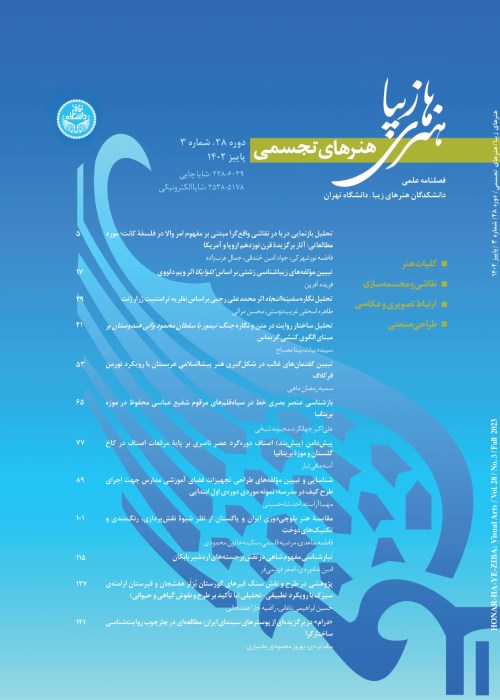Paradigm shift of national art to transnational Art:The study of art movements in the United Arab Emirates and Qatar
Contemporary art, in the age of globalization, goes beyond the narrative of national art. Contemporary art is based on multicultural, multinational experiences and hybrid identities. In the intersection of cultures it is possible to form contemporary art. Just as Qatar and the United Arab Emirates are trying to shape the contemporary art in the region as multinational and multicultural countries. Multiculturalism in these countries is due to the accumulation of foreign and international labor. Since more than 80 percent of their population is foreign labor, Qatar and the UAE prefer to follow the transnational identity and art by emphasizing multicultural policies. They want to be known as a "contact zone" or "trans-place". Transnational is a dream land in the universal modernity; in this land, the boundaries of identities are merged and have gained universal unity. A unity beyond the differences that can be formed in a “trans-place”. Bur from a critical point of view, trans-place is not a place for all people or any person from every culture. Actually this space is kind of non-place; where it does not point to any geography, climate or history; the Sterilized space from history, memory and culture. Marc Augé- French anthropologist- used the term "non-place" to refer to spaces where concerns of relations, history, and identity are erased. Dubai and Doha want to be utopia base on trans-place, trans-modern and transnational; but the non-place is the opposite of utopia: it exists, but it does not contain any organic society. Despite these criticisms, the policy of the United Arab Emirates and Qatar is to shape trance-place. They are international and transnational regions. In this meaning, these regions are not only an opportunity for exchange international art, but also they are a context for the development of transnational art. But how can transnational art be made? The methodological approach of this article is trend analysis. Trend of political change that drives cultural policy making and artistic movement. This article explain how Arab oil-rich countries have established museums and festivals by oil budget and have affected new Arab art movement. In this article we do research the trend of paradigm shift of national art to transnational Art by studying of collection of events (Museums and Art Exhibitions) and art works (Artists' experiences). The results of the study of art movements in the United Arab Emirates and Qatar, showed that in general, three characteristics for art can be enumerated in the transnational paradigm: 1. the creation of contemporary Islamic art as a multicultural experience. 2. Creation of digital and technology-oriented works of art; 3. Creation of environmental works of art as a common chapter of cultures and nationalities. This artistic movements are supported by the artistic events in the region. But these policies are associated with many problems. Critically, these transnationalism developments are alien to the indigenous and traditional culture of these countries; also, these events display the global capitalist economy rather than being an arena for transnational art. Evaluating transnational and transcultural policies needs further study.
- حق عضویت دریافتی صرف حمایت از نشریات عضو و نگهداری، تکمیل و توسعه مگیران میشود.
- پرداخت حق اشتراک و دانلود مقالات اجازه بازنشر آن در سایر رسانههای چاپی و دیجیتال را به کاربر نمیدهد.


